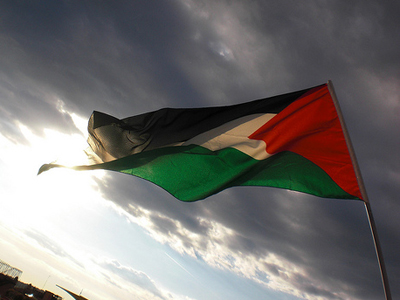Israel's New Politics and the Fate of Palestine
Mini Teaser: Geography and demography now trump democracy in Israel. The country pays lip service to the two-state solution while steadily appropriating the land it wants in the occupied territories.
To exercise control over the land without giving up its Jewish identity, Israel has embraced various policies of “separation.” It has separate legal systems for traditional Israeli territory and for the territory it occupies; it divides those who reside in occupied lands based on ethnic identity; it has retained control over occupied lands but evaded responsibility for the people living there; and it has created a conceptual distinction between its democratic principles and its actual practices in the occupied territories. These separations have allowed Israel to manage the occupation for forty-five years while maintaining its identity and international status. No other state in the twenty-first century has been able to get away with this, but it works for Israel, which has little incentive to change it.
THIS ARTICLE was written shortly after a coalition government controlling ninety-four seats out of 120 was formed in Israel. The coalition agreement between the two largest parties, Likud and Kadima, does not leave room for hope regarding a future breakthrough toward a two-state solution. The sides talked only in general terms about the resumption of the political process and instead emphasized the importance of maintaining Israel as a Jewish and democratic state. For this reason, they added a clarification regarding “the importance of maintaining defensible borders,” a phrase implying that any compromise contemplated by the coalition government centers on gaps between the positions of Likud and Kadima more than on those between Israelis and Palestinians.
At present, only fourteen Knesset members (a little more than 10 percent) constitute the opposition, which supports dividing the land into two states on the basis of the 1967 borders. Eleven of them are Palestinians who are Israeli citizens, and three are members of Meretz representing the Zionist Left. Even if we include the Labor Party, which facilitated the formation of Rabin’s cabinet some two decades ago with a majority of sixty-one seats, this faction’s presence has now been reduced to twenty-two Knesset members. Recent opinion polls indicate that, if the elections were held today, this political bloc would win thirty-two seats, a little more than a quarter of the parliament. Thus, the formation of the new unity government represents the monolithic nature of Israeli society. For decades, the boundaries of Israeli Jewish society, based on the Jews’ relationship with the Palestinians and the question of dividing the land, were the focus of disputes that at times split Israelis into separate groups. But now a consensual answer has emerged. While the hawkish political camp has adopted some rhetoric that used to characterize the dovish bloc, the latter has been forced to accept the political reality of being dominated. Thus does Israel’s grip on the occupied territories tighten, even as the issue wanes on Israelis’ public agenda.
No doubt, the present unity government can promote almost anything it wishes. That means it is unlikely to use its power to promote a new partition of the land into two states in any way acceptable to Palestinians. History teaches us that Israelis are only willing to take brave and honest steps toward peace when they know the cost of failing to do so will be even greater. Unfortunately, given the realities of the current situation, there is little reason to think that the Israelis will take these steps anytime soon.
Akiva Eldar is the chief political columnist and an editorial writer for Haaretz. He wishes to thank his researcher, Eyal Raz, for assistance with this article.
Image: clorofollia
Image: Pullquote: Washington knew its support for the ongoing peace process, however much it may be a sham, allowed it to maintain good relations with Arab countries even as it nurtured its “special relationship” with Israel.Essay Types: Essay
Pullquote: Washington knew its support for the ongoing peace process, however much it may be a sham, allowed it to maintain good relations with Arab countries even as it nurtured its “special relationship” with Israel.Essay Types: Essay 